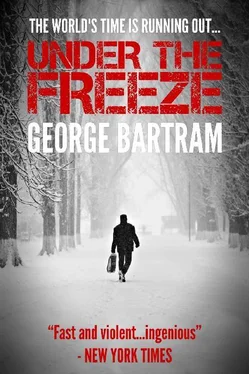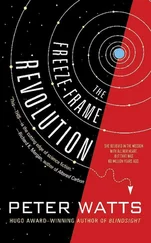She was applauding. He applauded. “Wasn’t it brilliant?” she cried. “Wonderful. Wonderful!” She stood up and he realized it was over. “Would you like to go to a nightclub?” she said.
“What would we do at a nightclub?”
“Dance!”
“Do you like to dance?”
“Just now, I love to dance!”
“We will go to a nightclub.”
It was like places in New York that people of his generation had dreamed about when they were adolescents, places that no longer existed — the homes of gossip columnists and “cafe society.” There was a floor show of extravagant noise and glitter, and a remarkable show of bare skin for a Socialist country. There was lots of rum, and there was dancing.
“Where did you learn to merengue?” she demanded. “You are a Cuban man!”
“You are very beautiful.”
“Dance with me again!”
When the nightclub closed at two in the morning, she took him to her apartment. She carried her high-heeled shoes in one hand and held on to his arm with the other, and on the concrete balcony of the floor below hers, they kissed. They held each other’s hands, nothing else; it was like the dance again, the dance impacted. “Come upstairs,” she whispered.
Outside her door there was a bulletin board with notices and posters and a long cardboard sign that read COMMITTEE FOR THE DEFENSE OF THE REVOLUTION. BLOCK MEETINGS TUESDAYS SEVEN P.M. EMERGENCIES ANY TIME.
“I am the block chairman,” she murmured.
As she undressed, she hummed a tune from the nightclub. It was self-aware but not insistent, neither coy nor stupid. Under the brown hose, her long legs were brown; her body was strong and supple. She cried out with pleasure and laughed afterward and then hugged him as they spiraled down toward sleep.
“Do you have to go away in the morning?” she murmured.
“Not right away.”
“Good.” She smiled, her face against his shoulder, and he could feel the muscles move. “Go to sleep, then.”
He had not slept for thirty-six hours. He let go, and his mind floated free.
When he awoke, there was light coming into the room from the window, and the barrel of his own .22 was poked hard into the soft flesh just below the bend of his left jaw.
“Did you take me for an imbecile?” she said. She was sitting on the bed naked, the gun in one hand and the DGI green card in the other.
There are no accidents , he thought. Repin had been right.
“Did you think I believed you, even on the beach?” she said. “Do you think that in Cuba we find men on the beach and think nothing more about it?”
“Take the gun away,” he growled. He hardly dared move his jaw.
“Oh, no. It is a very nice gun. An American gun — what a nice gun for a Russian to have. Or are you a Cuban named Ibazza? Is your name Ibazza when you work for the DGI?”
“I don’t like guns.”
“Do you think I always bring men home to my bed because they are handsome and charming and because they dance like angels?”
Some of her hair had fallen and her makeup was smudged, but she looked wonderful. She looked intelligent and vibrant, and she looked as if she hated him.
“You are beautiful,” he said. They were speaking Spanish now.
“Oh, yes.” It seemed to make her sad.
“What in the name of God — may I mention God? — do you think I was doing on the beach if I wasn’t doing what I said?”
“You are going to tell me that.”
“It has no logic.”
“Oh, but it has!” She waved the green card. “It is all logic.”
Tarp thought he understood. It made him want to laugh. He did smile a little. “You are a subversive!” He looked into her eyes, trying to penetrate to the mind beneath them, but she was tough and experienced and she held him out. “What are you, Juana?” he said. “Anti-Castro? A terrorist?” But an alarm was going off in the back of his head, which meant that something was very wrong, and he looked at the opaque eyes and the excited face and he thought she was too good to be an amateur. “Do you help people get to Miami, is that it?” he said, to play for time.
She waved the green card again. “You know all that or you would not be here.”
By looking down and to the left, he could see the gun. It was old; its blueing was raddled; it was only a production gun intended for somebody’s backpack. He thought of the Agency man he had shot on the boat, then of the two DGI men he had killed with the shotgun. Staying alive is a matter of knowing when to shoot first . Or at least of thinking that you knew when to shoot first, because you could never be sure — and if you shot first, you never found out if you were wrong. His eyes shifted to her face again. Does she know when to shoot first ?
There was a knock at the door. She did not move, nor did her eyes leave his. “Well?” she said.
A man’s muffled voice said, “Fernando is here, Juana.”
“Wait for me.”
She stood up very slowly and backed away from him, pulling the pistol away from his throat last as if she were disconnecting a cord. She felt behind her in a drawer for a pair of panties and then pulled them on one-handed, then got slacks and a blouse and put those on without ever looking away from him. She pushed her rather big feet into shoes by standing in them and wiggling the heels in, and then she said, “Come in now.”
Two men came in. They were both young, both dark. One looked like a college student, the sort who would be intensely intellectual and who might call himself a poet. The other looked as if he had worked all his life to get where he was, so that he was thicker and coarser and yet jollier.
Juana gave the poetic one the pistol.
“I will be back at noon,” she said. “Do not let him out.”
She closed the door behind her and he heard her steps rapping over the concrete floor, and then the outer door thudded as she left the apartment, and a framed photograph of six young women in track suits swayed on its nail and hung crookedly. He thought he could hear her after she left the apartment, walking down the gallery beyond her door, but finally he could not hear even the faint ghost of her angry footsteps, and he knew that for a while he had been listening to the sounds of the morning traffic and of his own blood in his ears.
“We could torture him,” the poetic one said.
The thick one looked dubious. Tarp sat up. “Who wants to start?” he said.
The poet had a little of the fanatic’s gleam, but he also had the gun, and that satisfied him. His friend, who was pragmatic and who knew that the two of them could not torture this large, muscular man, even when they had a gun, was relieved.
“We will wait for Juana,” he said.
“I need to pass water,” Tarp said.
The thick one got a bucket while the poet sat astraddle of the room’s only chair, imagining himself Humphrey Bogart in Key Largo .
The man set the bucket down next to a tiny sink with one tap. “We cannot let you go to the convenience, you understand,” he said with genuine apology in his voice.
“Do not be so kind to him!” the poet said.
The thick one shrugged. “Pissing is not a political issue.” He put his hands in his pants pockets. “Anyway, Juana says he may be one of us.”
“If he is not DGI,” the poet said. “Or KGB.”
“Actually,” Tarp said, “I am Chinese.” He got out of bed and stood there naked, eight inches taller than either of them, his body marked with scars that were like tick marks on a map to show places of interest. In fact, he had been born in China and he had grown up there, but the two young Cubans took it as the sour joke of a cynical older man. They backed to the door and then locked him in, and Tarp knew that they were well-meaning young men who thought that shooting first was morally wrong.
Читать дальше












